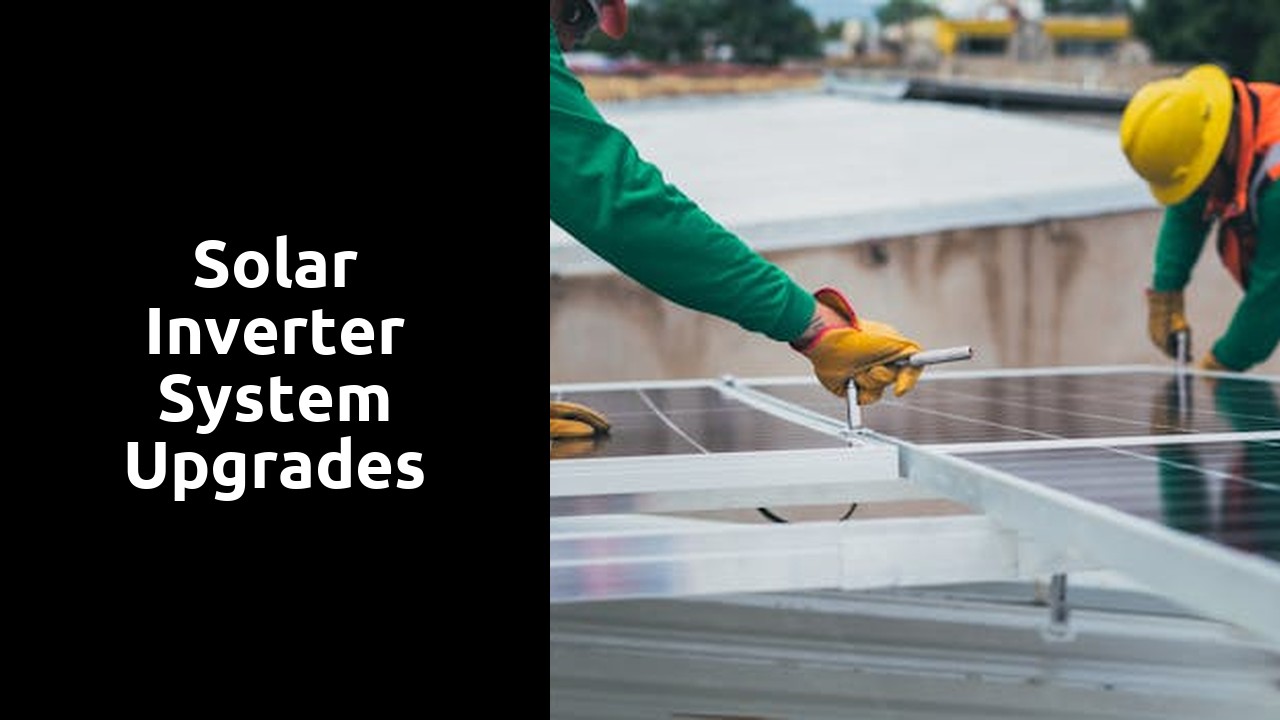
ace of mind that the system meets all necessary requirements and operates optimally for years to come.
Monitoring Solar Inverter Performance in Queensland
Solar inverters play a crucial role in the efficiency and performance of solar power systems across Queensland. Regular monitoring of solar inverter performance is essential to ensure optimal energy production and overall system reliability. By keeping a close eye on inverter output and functioning, solar system owners can identify any issues promptly and take necessary actions to rectify them, thereby maximizing energy generation and return on investment.
As technology advances, solar inverter systems continue to evolve with improvements in efficiency and capacity. Keeping abreast of these developments is vital for system owners looking to enhance their solar energy output and reduce operational costs. Solar inverter system upgrades offer a pathway to harness the latest innovations in the field, allowing for increased performance and reliability in Queensland's solar power installations. By embracing these advancements, solar system owners can further optimise their energy production and stay ahead in the rapidly evolving landscape of renewable energy technologies.
Importance of Regularly Checking Inverter Output
Regularly monitoring your solar inverter's output is essential to ensure that your system is functioning optimally. By checking the inverter output regularly, you can promptly identify any issues or drops in performance, allowing for timely troubleshooting and maintenance. This proactive approach can help prevent potential issues from escalating, ultimately saving you time and money in the long run. Additionally, monitoring your inverter output can provide valuable insights into your system's overall efficiency and performance, enabling you to make informed decisions about potential Solar Inverter System Upgrades to enhance your solar energy generation.
Understanding your solar inverter's output over time can also help you track the system's performance and energy production accurately. By maintaining a record of your inverter readings, you can better assess any fluctuations or deviations in performance and address them promptly. Regularly checking your inverter output allows you to stay informed about your system's health and performance, empowering you to take proactive steps towards maximizing your solar energy production efficiency. With a proactive monitoring approach, you can ensure that your solar energy system continues to operate effectively and benefits you in the long term.
Future Developments in Solar Inverter Technology
The rapid advancements in solar inverter technology are driving significant improvements in energy efficiency and system performance. Manufacturers are continually innovating to enhance the capabilities of solar inverters, ensuring that they meet the evolving demands of the industry. With a focus on enhancing reliability and increasing energy production, the development of next-generation solar inverters is poised to revolutionize the way solar energy is harnessed and utilized. Who is eligible for the no cost solar program in Qld?
Solar inverter system upgrades are becoming increasingly popular as existing systems seek to capitalize on the latest technological developments. These upgrades offer the potential to boost system efficiency, prolong the lifespan of inverters, and maximize energy output. As the solar industry in Queensland continues to expand, the adoption of advanced solar inverter technology is expected to play a pivotal role in driving the transition towards a more sustainable and environmentally conscious energy landscape.
Trends in Increasing Inverter Efficiency and Capacity
What can I do if my solar panels are not working?
What are the trends in increasing inverter efficiency and capacity in Queensland?
The trends in Queensland are towards developing inverters with higher efficiency ratings and increased capacity to meet the growing demand for solar energy systems.
